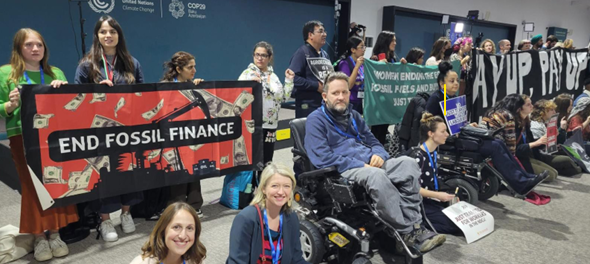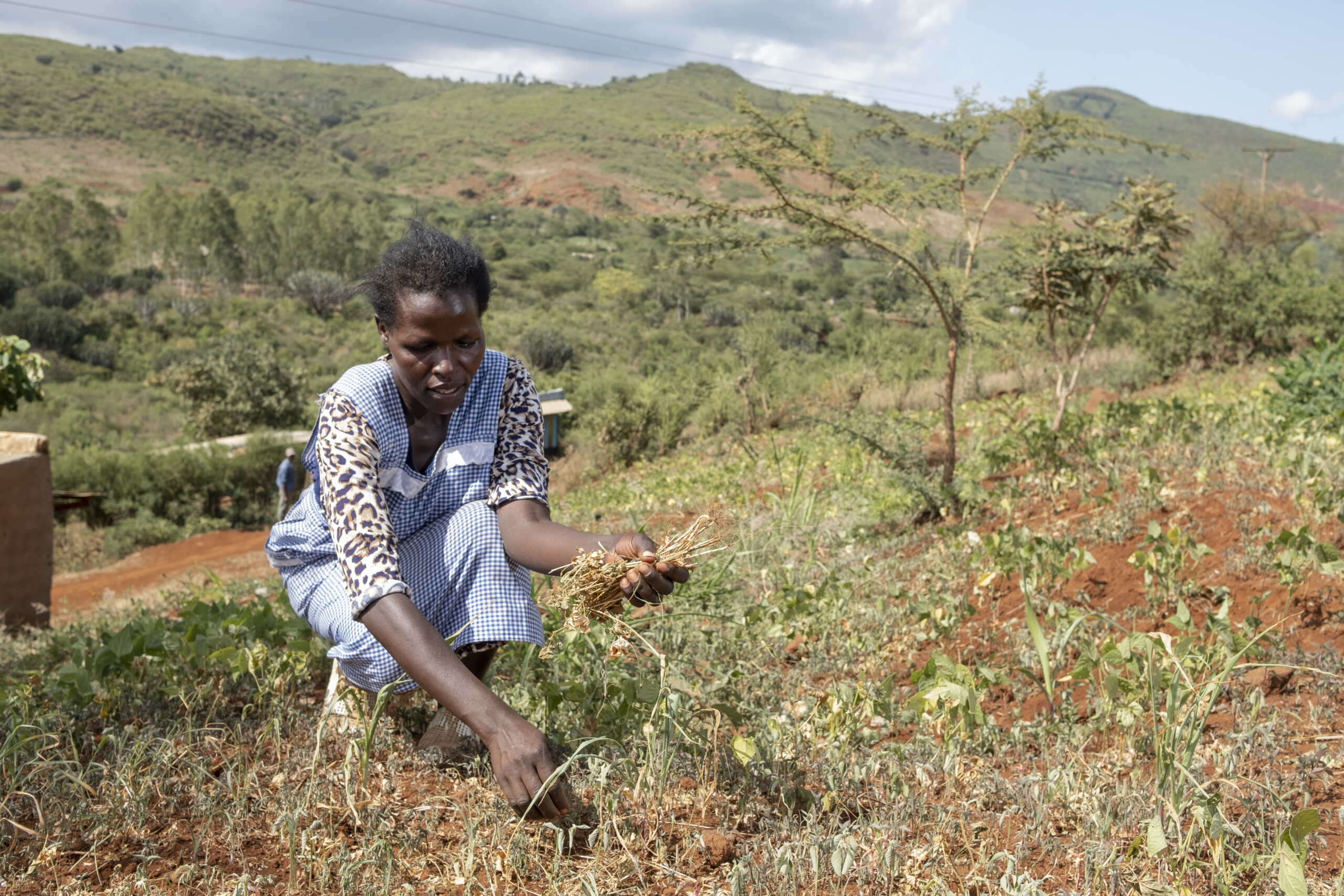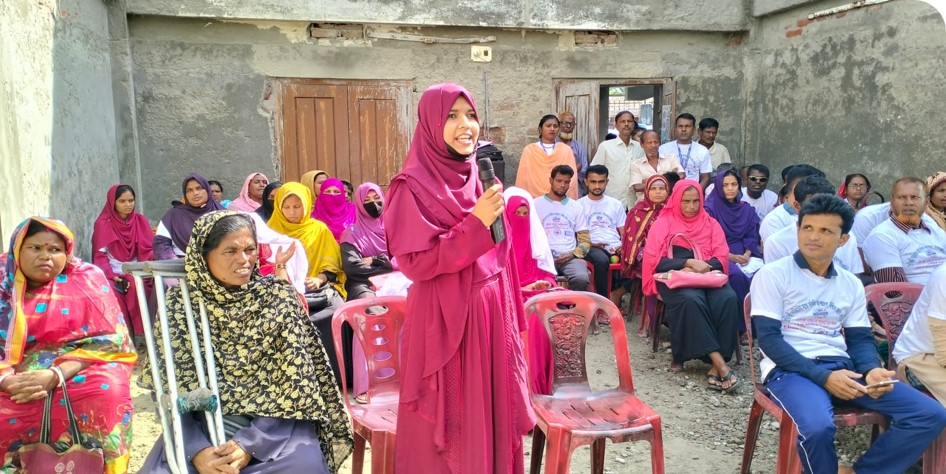Data & evidence missing on the impact of climate change on persons with disabilities
News | July 13, 2022
The High-level Political Forum, which takes place every July at the global level, is a time to bring governments and civil society together to reflect on what progress has been in implementing the Sustainable Development Goals (SDGs) and also to assess where more efforts are needed. Since the adoption of the 2030 Agenda for Sustainable Development and its SDGs, there have been many positive developments in data, including data on persons with disabilities. There have also been challenges, with the increasing climate crisis, pandemics, and conflicts – all of these impacting on development gains made over recent decades.
A side event organised by the Stakeholder Group of Persons with Disabilities on July 13th brought together a number of OPDs to talk about how important data on persons with disabilities is during times of crisis – with a particular emphasis on climate change, sharing experiences from Bangladesh. According to the Global Climate Risk Index (CRI) 2021, Bangladesh is the seventh most climate change vulnerable country. The recent flooding in Sylhet, northeast Bangladesh has had a devastating impact on its communities.
Key issues shared on OPD experiences in Bangladesh include:
- Lack of data and a small number of OPDs able to support: No data on how persons with disabilities have been affected by the flooding, persons with disabilities are scattered in this area and even getting cash support to these persons takes a bit of time. There are not so many OPDs to support them either.
- OPDs not inputting into policy: What we have seen is that the National Adaptation Plan (NAP) has been finalized. The NAP will primarily focus on four thematic areas namely water resources, agriculture, livelihood security, climate change prone urban, drought, and coastal areas. Unfortunately, it is not evident how and where OPDs have been involved in making these plans.
- Lack of coordination between the different government departments can lead to an oversight of the intersection of climate and disability rights. For example, the Ministry of Environment, Forest and Climate Change (MoEFC) has made the draft NAP. The Ministry responsible for persons with disabilities is the Ministry of Social Welfare and unless there is a coordinated effort, the rights of persons with disabilities can fall between the gaps.
- Donor influence: In climate change, the donors have not yet added them in order to enhance the skills and capacity of persons with disabilities and to work in a particular field. As a result, there is not much work being done for persons with disabilities to know exactly what situation they are in, what needs to be done for them, and how.
Some interim findings were also shared at the side event. CBM Global is working with a Master’s student who is documenting the experience of OPDs engaging in responding to the climate crisis and being involved as active contributors to efforts to tackle the climate crisis. Two CBM Global programme countries are being researched: Bangladesh and Madagascar, and the findings so far from Bangladesh include:
- a strong desire for persons with disabilities to be represented in government meetings on climate change and a will to include climate change into their work, but a lack of capacity and accessibility to do so;
- the need for increased knowledge, awareness, and information of how climate change is affecting their communities. Respondents highlighted how they felt the impact of experiencing negative impacts on their bodies, displacement, food insecurity, because of extreme weather events, and more information and planning for accessibility was important; and
- Some mentioned that they are too busy fighting for their basic human rights to be able to focus their activities on the impacts of climate change and that more financial support, networking with other organisations, and awareness-raising are needed to do so.
Thank you to Salma Mahbub, Executive Director & Founder General Secretary, Bangladesh Society for the Change and Advocacy Nexus (B-SCAN) for presenting, and Eleonora Moen, Master’s Student who is working as an intern with the CBM Global Advocacy team.
https://cbm-global.org/news/data-evidence-missing
Related News

One in Five Is Not Enough: The gains on Disability Inclusion have not gone far enough
One in Five Is Not Enough: The gains on...

COP30 Is a Turning Point for Disability-Inclusive Climate Action
As the world gathers in Belém, Brazil, from 10–21 November 2025 for COP30, the message from...

Achieving resilience for all requires funding disability inclusion in DRR
On International Day for Disaster Risk Reduction (DRR) 2025,...
